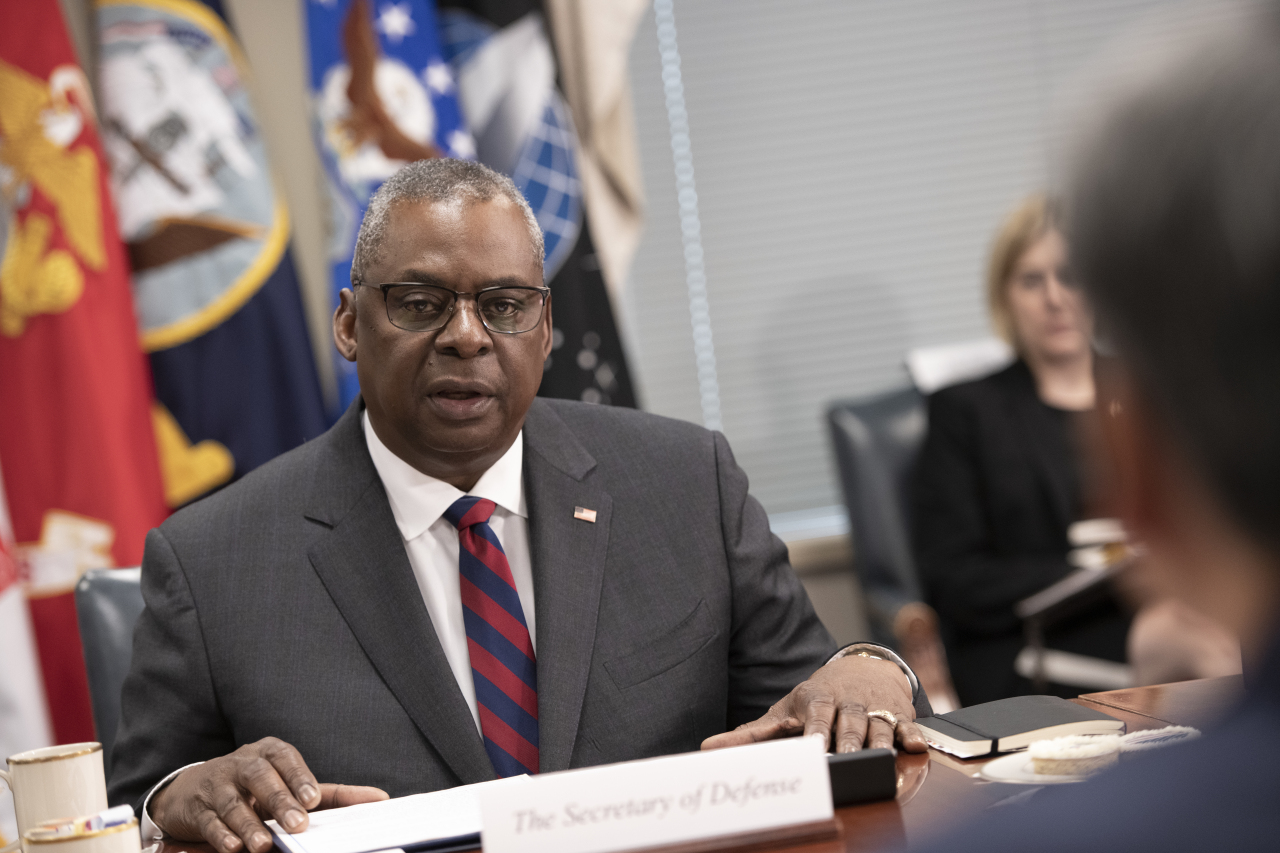 |
Secretary of Defense Lloyd J. Austin III hosts South Korean Minister of National Defense Lee Jong-sup for talks at the Pentagon, Washington, D.C., July 29, 2022. (Photo - US Department of Defense) |
US Secretary of Defense Lloyd Austin is likely to visit Seoul before the allies stage a tabletop exercise, or TTX, to simulate North Korean nuclear attacks on the Korean Peninsula, in the US in February, South Korean government officials confirmed to The Korea Herald.
South Korean Defense Minister Lee Jong-sup and Austin will discuss ways to enhance the viability of the US’ extended deterrence and the upcoming TTX led by the Deterrence Strategy Committee, as well as the alliance’s other pending issues.
South Korean and US senior officials will discuss policy responses against North Korea’s use of nuclear weapons and come up with counterstrategies through the discussion-based DSC TTX.
The outcomes of the DSC TTX will be reflected in the South Korea-US Tailored Deterrence Strategy, which will be updated and revised by the end of this year, in light of the evolving nature of North Korea’s missile and nuclear capabilities. The TDS is a strategic guideline on the alliance’s deterrence measures and response to better prepare for North Korea’s advancing nuclear and missile threats. However, it has yet to be updated since the allies first signed on in 2013.
The latest South Korea-US defense ministerial meeting was held in Washington in November 2022. However, Austin’s visit to Seoul marks the first by an American defense secretary since December 2021.
The South Korean Defense Ministry’s spokesperson Jeon Ha-kyu declined to confirm the precise timing of Austin’s trip during a televised regular press briefing, explaining that the ministry and the US Defense Department have been in discussion on the matter.
Austin and Lee will also discuss issues related to trilateral security cooperation among South Korea, the US and Japan, such as military and nonmilitary training exercises, The Korea Herald learned.
Lee said the Defense Ministry aims to “regularize” missile warning, ballistic missile search and tracking as well as anti-submarine warfare exercises -- which have been irregularly staged with the US and Japan -- this year, in an interview with South Korea’s Segye Ilbo newspaper published Monday.
Lee also shared the ministry’s plan to seek to resume nonmilitary trilateral training exercises, including maritime interdiction exercises as well as search and rescue exercises, which were suspended in the aftermath of a radar lock-on dispute between South Korea and Japan in 2018.
Another item on the agenda would be ways to share North Korea’s missile warning data in real time to improve each country’s ability to detect and assess the threat posed by incoming missiles. The leaders of South Korea, the US and Japan agreed to information sharing during a summit held in November 2022 in Phnom Penh, Cambodia, labeling it a “major step for deterrence, peace and stability.”
Seoul, Washington and Tokyo also have been in discussions over scheduling assistant secretary-level Defense Trilateral Talks, which would deal with specific and technical ways to upgrade the trilateral information-sharing system and other pending issues. The DTT will likely be held sometime between March and May, according to government sources.
South Korea, the US and Japan signed the Trilateral Information Sharing Arrangement in December 2014, which allows the three countries to voluntarily share classified information through the US as a hub.
The legally binding General Security of Military Information Agreement between South Korea and Japan – which enables the two countries to directly share sensitive information – has been active since 2016. However, both sides need to normalize the military information-sharing agreement, which has not been fully operated since the former Moon Jae-in government’s tentative postponement of the deal’s termination in 2019.







